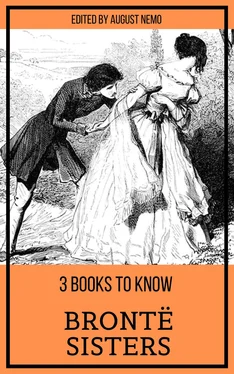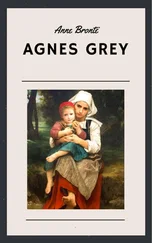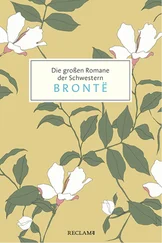My object in writing the following pages was not simply to amuse the Reader; neither was it to gratify my own taste, nor yet to ingratiate myself with the Press and the Public: I wished to tell the truth, for truth always conveys its own moral to those who are able to receive it. But as the priceless treasure too frequently hides at the bottom of a well, it needs some courage to dive for it, especially as he that does so will be likely to incur more scorn and obloquy for the mud and water into which he has ventured to plunge, than thanks for the jewel he procures; as, in like manner, she who undertakes the cleansing of a careless bachelor’s apartment will be liable to more abuse for the dust she raises than commendation for the clearance she effects. Let it not be imagined, however, that I consider myself competent to reform the errors and abuses of society, but only that I would fain contribute my humble quota towards so good an aim; and if I can gain the public ear at all, I would rather whisper a few wholesome truths therein than much soft nonsense.
As the story of ‘Agnes Grey’ was accused of extravagant over-colouring in those very parts that were carefully copied from the life, with a most scrupulous avoidance of all exaggeration, so, in the present work, I find myself censured for depicting con amore, with ‘a morbid love of the coarse, if not of the brutal,’ those scenes which, I will venture to say, have not been more painful for the most fastidious of my critics to read than they were for me to describe. I may have gone too far; in which case I shall be careful not to trouble myself or my readers in the same way again; but when we have to do with vice and vicious characters, I maintain it is better to depict them as they really are than as they would wish to appear. To represent a bad thing in its least offensive light is, doubtless, the most agreeable course for a writer of fiction to pursue; but is it the most honest, or the safest? Is it better to reveal the snares and pitfalls of life to the young and thoughtless traveller, or to cover them with branches and flowers? Oh, reader! if there were less of this delicate concealment of facts—this whispering, ‘Peace, peace,’ when there is no peace, there would be less of sin and misery to the young of both sexes who are left to wring their bitter knowledge from experience.
I would not be understood to suppose that the proceedings of the unhappy scapegrace, with his few profligate companions I have here introduced, are a specimen of the common practices of society—the case is an extreme one, as I trusted none would fail to perceive; but I know that such characters do exist, and if I have warned one rash youth from following in their steps, or prevented one thoughtless girl from falling into the very natural error of my heroine, the book has not been written in vain. But, at the same time, if any honest reader shall have derived more pain than pleasure from its perusal, and have closed the last volume with a disagreeable impression on his mind, I humbly crave his pardon, for such was far from my intention; and I will endeavour to do better another time, for I love to give innocent pleasure. Yet, be it understood, I shall not limit my ambition to this—or even to producing ‘a perfect work of art’: time and talents so spent, I should consider wasted and misapplied. Such humble talents as God has given me I will endeavour to put to their greatest use; if I am able to amuse, I will try to benefit too; and when I feel it my duty to speak an unpalatable truth, with the help of God, I will speak it, though it be to the prejudice of my name and to the detriment of my reader’s immediate pleasure as well as my own.
One word more, and I have done. Respecting the author’s identity, I would have it to be distinctly understood that Acton Bell is neither Currer nor Ellis Bell, and therefore let not his faults be attributed to them. As to whether the name be real or fictitious, it cannot greatly signify to those who know him only by his works. As little, I should think, can it matter whether the writer so designated is a man, or a woman, as one or two of my critics profess to have discovered. I take the imputation in good part, as a compliment to the just delineation of my female characters; and though I am bound to attribute much of the severity of my censors to this suspicion, I make no effort to refute it, because, in my own mind, I am satisfied that if a book is a good one, it is so whatever the sex of the author may be. All novels are, or should be, written for both men and women to read, and I am at a loss to conceive how a man should permit himself to write anything that would be really disgraceful to a woman, or why a woman should be censured for writing anything that would be proper and becoming for a man.
July 22nd, 1848.
––––––––
YOU MUST GO BACK WITH me to the autumn of 1827.
My father, as you know, was a sort of gentleman farmer in —shire; and I, by his express desire, succeeded him in the same quiet occupation, not very willingly, for ambition urged me to higher aims, and self-conceit assured me that, in disregarding its voice, I was burying my talent in the earth, and hiding my light under a bushel. My mother had done her utmost to persuade me that I was capable of great achievements; but my father, who thought ambition was the surest road to ruin, and change but another word for destruction, would listen to no scheme for bettering either my own condition, or that of my fellow mortals. He assured me it was all rubbish, and exhorted me, with his dying breath, to continue in the good old way, to follow his steps, and those of his father before him, and let my highest ambition be to walk honestly through the world, looking neither to the right hand nor to the left, and to transmit the paternal acres to my children in, at least, as flourishing a condition as he left them to me.
‘Well!—an honest and industrious farmer is one of the most useful members of society; and if I devote my talents to the cultivation of my farm, and the improvement of agriculture in general, I shall thereby benefit, not only my own immediate connections and dependants, but, in some degree, mankind at large:—hence I shall not have lived in vain.’ With such reflections as these I was endeavouring to console myself, as I plodded home from the fields, one cold, damp, cloudy evening towards the close of October. But the gleam of a bright red fire through the parlour window had more effect in cheering my spirits, and rebuking my thankless repinings, than all the sage reflections and good resolutions I had forced my mind to frame;—for I was young then, remember—only four-and-twenty—and had not acquired half the rule over my own spirit that I now possess—trifling as that may be.
However, that haven of bliss must not be entered till I had exchanged my miry boots for a clean pair of shoes, and my rough surtout for a respectable coat, and made myself generally presentable before decent society; for my mother, with all her kindness, was vastly particular on certain points.
In ascending to my room I was met upon the stairs by a smart, pretty girl of nineteen, with a tidy, dumpy figure, a round face, bright, blooming cheeks, glossy, clustering curls, and little merry brown eyes. I need not tell you this was my sister Rose. She is, I know, a comely matron still, and, doubtless, no less lovely—in your eyes—than on the happy day you first beheld her. Nothing told me then that she, a few years hence, would be the wife of one entirely unknown to me as yet, but destined hereafter to become a closer friend than even herself, more intimate than that unmannerly lad of seventeen, by whom I was collared in the passage, on coming down, and well-nigh jerked off my equilibrium, and who, in correction for his impudence, received a resounding whack over the sconce, which, however, sustained no serious injury from the infliction; as, besides being more than commonly thick, it was protected by a redundant shock of short, reddish curls, that my mother called auburn.
Читать дальше











